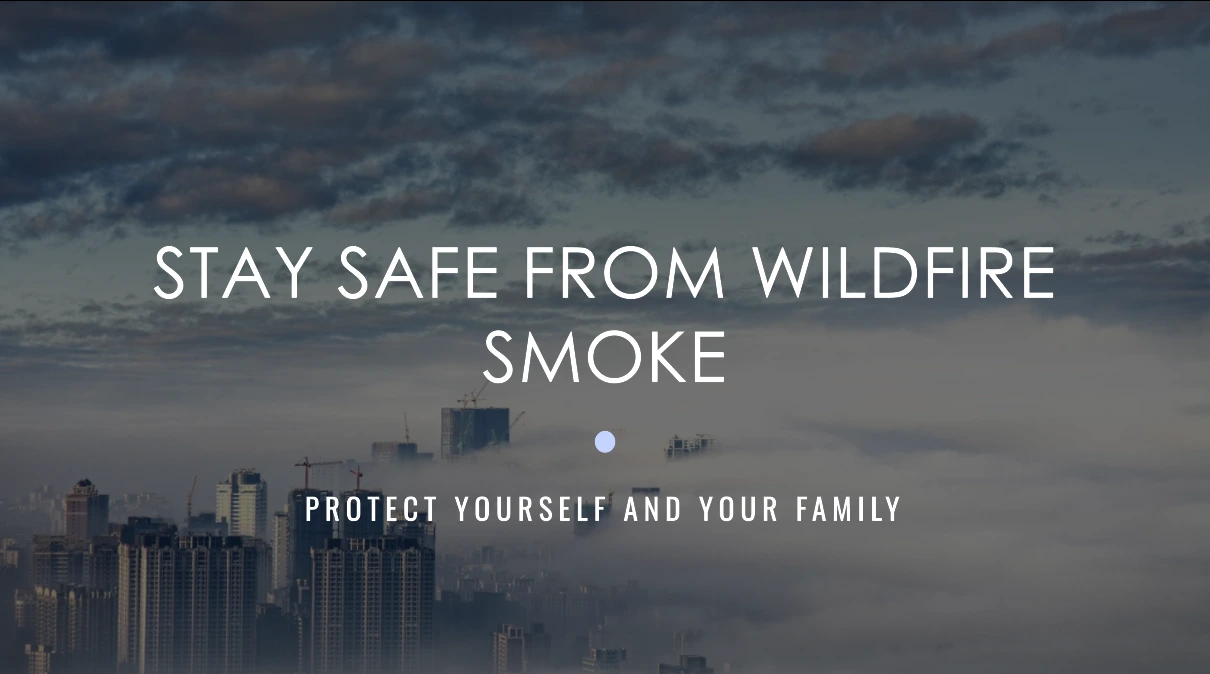The San Francisco Bay Area, known for its stunning landscapes and vibrant communities, has been grappling with a significant challenge in recent times—a wildfire that has not only threatened homes and natural habitats but also impacted the air quality across the region. In this blog, we will delve into the latest developments regarding the wildfire, the resulting smoke, its effect on the air quality index (AQI), and the safety measures residents can take to protect themselves.
The Wildfire Situation
The wildfire in the San Francisco Bay Area, as of September 20, 2023, has raised alarms and garnered the attention of local authorities, residents, and concerned citizens. Let’s take a closer look at the current situation:
| Wildfire Name | Location | Containment Status | Notable Updates |
| Bay Area Blaze | Multiple Counties | Ongoing | Evacuations in progress; firefighting efforts underway |
The “Bay Area Blaze” is currently impacting multiple counties in the region and remains uncontained, posing a significant threat to communities.
The Smoke and Its Consequences
The wildfire has led to the release of copious amounts of smoke, which has blanketed the San Francisco Bay Area, affecting visibility and air quality. Here’s an overview of the smoke’s impact:
| Smoke Presence | Visibility | Health Concerns |
| Widespread | Reduced | Respiratory and cardiovascular problems; eye irritation |
The presence of smoke has not only reduced visibility but has also given rise to severe health concerns, particularly for vulnerable individuals with pre-existing respiratory conditions.
Air Quality Index (AQI) Readings
Monitoring the AQI is crucial during wildfire events, as it provides valuable insights into the safety of outdoor activities and potential health risks. The Bay Area Air Quality Management District (BAAQMD) is diligently tracking and updating the AQI for residents:
| Location | AQI Level | Health Advisory |
| San Francisco | 165 (Unhealthy) | Limit outdoor activities; wear N95 masks |
| Oakland | 178 (Unhealthy) | Stay indoors; use air purifiers |
| San Jose | 154 (Unhealthy) | Close windows and doors; follow official alerts |
The AQI levels in key Bay Area cities, including San Francisco, Oakland, and San Jose, have reached “Unhealthy” levels due to the elevated concentration of PM2.5 particles in the air. These levels warrant immediate precautions to safeguard health.
What You Can Do
In light of the wildfire’s impact on air quality, it is essential for residents to take proactive measures to protect themselves and their loved ones:
1. Stay Informed
Regularly check updates from trusted sources like the National Weather Service for wildfire developments and safety recommendations. Being informed can help you make timely decisions to ensure your safety.
2. Monitor the AQI
Keep a close eye on the AQI in your area, as provided by the BAAQMD. This real-time data can guide you in gauging the safety of outdoor activities and whether it’s advisable to stay indoors.
3. Protect Your Health
If you reside in an area with poor air quality, follow these health-conscious measures:
- Limit Outdoor Activities: Minimize outdoor exposure, especially during peak smoke hours.
- Use N95 Masks: When outdoors, wear N95 masks to reduce inhalation of harmful particles.
- Stay Indoors: Keep windows and doors closed to prevent smoke from entering your home.
- Use Air Purifiers: Consider using air purifiers with HEPA filters to improve indoor air quality.
- Stay Hydrated: Drink plenty of water to help your body cope with exposure to smoke.
4. Be Prepared for Evacuations
If you live in an area directly threatened by the wildfire, prepare an emergency kit and be ready to evacuate if local authorities issue evacuation orders. Having essential items ready in advance can streamline the process and ensure your safety.
5. Support Local Efforts
Wildfires take a toll not only on individuals but also on the community as a whole. Consider supporting local relief efforts and volunteer opportunities to help those affected by the wildfire.
Conclusion
The wildfire in the San Francisco Bay Area has brought with it challenges that demand resilience, vigilance, and community support. By staying informed, monitoring air quality, and taking appropriate precautions, residents can navigate these difficult times while prioritizing their health and safety. Together, as a united community, we can overcome the challenges posed by wildfires and emerge stronger and more prepared for the future.
